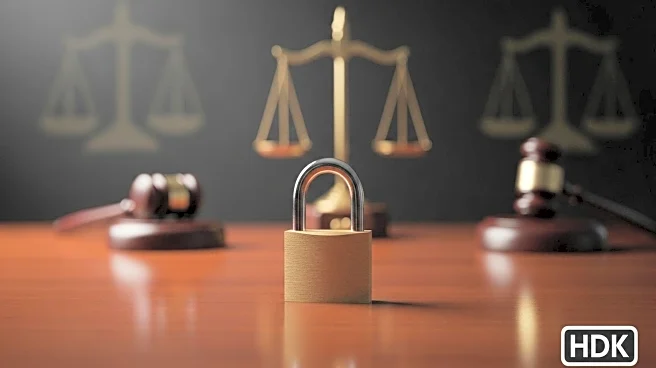What is the story about?
What's Happening?
The U.S. government faces a potential shutdown on October 1, as Republicans and Democrats remain at an impasse over funding proposals. President Trump canceled a meeting with Democratic leaders, citing their 'unserious and ridiculous demands,' while Democrats insist on concessions, particularly regarding healthcare subsidies. The standoff centers on securing seven Democratic votes needed to pass a funding bill in the Senate. Democrats are focused on extending Affordable Care Act subsidies and restoring Medicaid funding, while Republicans propose a 'clean' bill maintaining current funding levels.
Why It's Important?
A government shutdown could have significant economic and social repercussions, disrupting federal services and affecting millions of Americans. The deadlock reflects deep partisan divisions, with Democrats under pressure to oppose Trump's agenda and Republicans seeking to maintain fiscal control. The outcome of this standoff could influence future budget negotiations and impact public perception of both parties' ability to govern effectively.
What's Next?
With the deadline approaching, both parties may face increased pressure to reach a compromise to avoid a shutdown. The Senate is scheduled to reconvene with one day to spare, but the likelihood of a resolution remains uncertain. If a shutdown occurs, President Trump could leverage executive power to strategically pause government services, potentially affecting political dynamics and public opinion.















